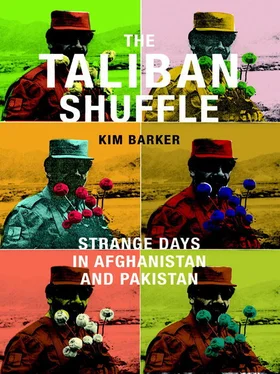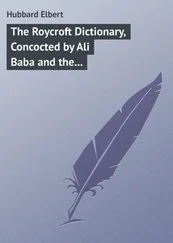This posed a challenge—given the intensity in Iraq, where sixty-seven U.S. troops were killed in the fighting in May, any story in Afghanistan, where three U.S. troops were killed the same month, would likely grab little attention. Only about 18,000 U.S. troops had deployed to Afghanistan, mainly doing combat operations, and another 8,000 troops from other countries handled peacekeeping. True, more foreign troops were here than the year before, but the number was still nothing compared to Iraq, with 138,000 U.S. troops and 23,000 from other countries. Afghanistan was the small war, even if many were casting it as the “good war” compared to the badness of Iraq.
But it was a small war. That spring of 2005, the Taliban were like mosquitoes, constantly irritating, occasionally fatal. Roadside bombs continued to kill soldiers, but helicopter crashes had proved more dangerous. Sure, the Taliban blew up things in the south, but so far they mostly blew up themselves, and their attempts to use recalcitrant donkeys as suicide bombers only provoked laughter. It was a known fact: Afghans and Pakistanis were probably the worst suicide bombers in the entire spectrum of militants.
A photographer and I flew by helicopter to the Orgun-E base in Paktika to embed with U.S. soldiers. Paktika was almost the size of New Jersey, an extremely poor province with no paved roads and few schools, a mountainous and desolate wasteland plopped along the border with Pakistan, right across from the mountainous tribal agencies of North and South Waziristan, otherwise known as Terrorist Haven, the vacuums of Pakistani authority where the Taliban held sway. The U.S. philosophy had been explained to me at Bagram Airfield, the largest U.S. military base in Afghanistan—the troops “drained swamps,” which meant hunting down militants, while “emboldening local leaders and the population.”
As long as I was running away from my problems, I wanted to get out on the front lines, where the swamps were being drained. My goal was a town called Bermel, which the Taliban had seized earlier, cutting off the police chief’s head. U.S. and Afghan troops had recaptured the town and were fighting the bad guys nearby. (I later found out that this was known in military parlance as “troops in contact,” or TIC, or “tick.” I would learn that everything in the military had an acronym. The IED was an improvised explosive device, or a roadside bomb. The BBIED was a body-borne improvised explosive device, otherwise known as a suicide bomber. And the DBIED was a donkey-borne improvised explosive device, otherwise known as a really stupid idea.)
Yes, I wanted to get my war on, because I had no idea what I was talking about, what war was really like. To fill my spare time, and to make sure I didn’t have a spare second to think, I even lugged along something to set the mood, a miniseries about war, Band of Brothers . I planned to be all war, all the time. But as soon as I stepped off the helicopter and met the base media handler, I figured out I was in the wrong place. It soon became obvious that he was unlikely to send me anywhere.
“When you go to the bathroom at night, be sure to take your photographer,” my handler told me. “There are only three other women here.”
I wasn’t sure who or what, exactly, he was worried about, and I didn’t know the proper protocol, so I just smiled and nodded. I knew if he wanted the male photographer to shadow me to the bathroom, we would never be flown to the fighting nearby, close to the border with Pakistan. Every day I asked for a “bird,” figuring that if I used military slang, it would help. Every day I was told no. And I could see why—soldiers were actually fighting the Taliban down near Bermel, and as journalists, we were the last priority for the precious air slots available, slightly below mail. So instead, the photographer and I were sent out on trips with a platoon of combat engineers who were so bored that the leader carried copies of The Complete Guide to Investing in Rental Properties and Own Your Own Corporation with him on patrol.
“Oh, it’s going to be a long, boring day,” he said at the beginning of one. Then he realized that sounded bad. “That’s a good thing.”
That day alone, we visited five villages. The soldiers had several missions. To find out about Afghans in army uniforms robbing so-called jingle trucks, the acid-trip trucks from Pakistan that transported most food and supplies in the region and featured fluorescent fantasy paintings and dangly metal chains that clanked together and sounded like “Jingle Bells.” To find out about a nearby IED. To find out about an alleged insurgent named “Hamid Wali” or maybe “Mohammad Wali,” no one seemed sure—names here frankly as common as Jim or John Wilson. And always, their mission was to win hearts and minds, to convince the Afghans that they were there only to help.
We started by walking around a market in Orgun, where stalls sold everything from pirated DVDs to live chickens. One soldier bought a teapot for $3. A staff sergeant tried to build rapport with the shop owner, who wore a pakol, a traditional hat that resembled a pie with an extra roll of dough on the bottom.
“We’re just trying to collect information about a robbery that happened less than a week ago,” the staff sergeant told Pakol. “Local nationals in green uniforms robbed a jingle truck on Highway 141.”
The optimistically named Highway 141 was a one-lane dirt road. Pakol looked suspicious. “We don’t know. We come here early in the morning. We leave here late in the evening. We haven’t heard anything.”
The staff sergeant tried another question.
“IED on the way to Sharana?”
“We don’t know about this,” Pakol said. Then he waited a beat. “If we see mines or something, we’ll let you know.” He waited another beat. “But if you want tea, we’ll give you tea.”
With no objections, Pakol blew out dust from a few cups and poured from a pot boiling on a gas canister. We all sipped green tea.
“Did you come to help us or what?” Pakol asked, after the first cup was gone. That was Afghan tea protocol. Always wait for a cup of tea to ask a serious question. Pakol then ticked off his complaints, the things he wanted the Americans to fix.
“The dust is really bad,” he said.
“There’s always gonna be something,” the staff sergeant replied.
With that, we left the shop. As we trudged along, everyone stared at us, making it difficult to shop. I knew why: Here were men in army uniforms, flak vests, and helmets, twenty-first-century soldiers carrying guns, looking like unbeatable futuristic fighting machines, establishing a perimeter, looking, checking, in the middle of a fifteenth-century dusty souk. I walked in the middle, wearing a headscarf beneath my helmet, trying to bridge two cultures. I looked at the translator, a nineteen-year-old kid from Kabul. He had wrapped a scarf around the bottom of his face like a Wild West bandit and put on sunglasses and a baseball cap.
“What’s up with the outfit?” I asked him.
“So the people don’t know me,” he said. “The Afghans here say you are not a Muslim if you work with the Americans.”
We left town and drove on. Suddenly someone spotted a suspicious white bag in the middle of the road. Our four-vehicle convoy lurched to a slow stop. Sergeant Ben Crowley, a smart aleck who thrived on making everyone laugh, jumped out of his Humvee. He looked through the scope of his rifle at the bag. No wires poked out, nothing indicated bomb. He moved closer, his gun pointed at the bag. I guess I should say the suspense was killing us, but that would be a lie. Boredom was killing us. I hopped out of my Humvee and walked up to Crowley.
“You gonna kill it?” I asked, staring at the bag. Traffic lined up behind our convoy.
Читать дальше











